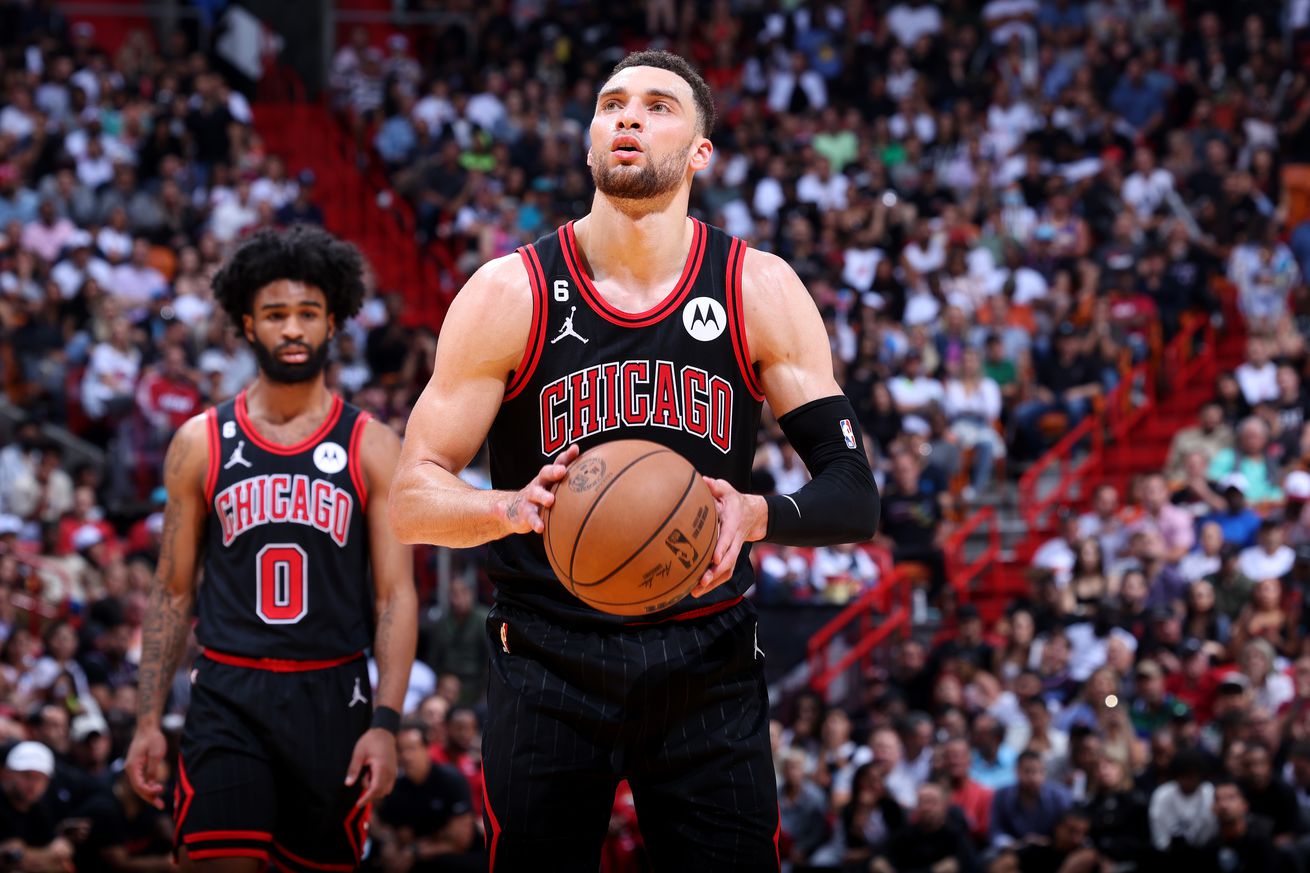Photo by Jeff Haynes/NBAE via Getty Images
Chicago is reportedly gauging trade offers for star guard Zach LaVine.
In what has been a jam-packed week of star trade rumors, it looks like we can now add Zach LaVine to the list of high-profile guys who could be on the move for the right offer. On Thursday, Jake Fischer of Yahoo Sports reported this:
“Wishful executives will keep their eyes peeled on Portland and Damian Lillard, but it’s the Chicago Bulls who have started contacting teams, quietly gauging the trade interest in Zach LaVine, league sources told Yahoo Sports. It remains to be seen just how willing Chicago is to part ways with LaVine, or if it receives a commensurate offer for his services. LaVine has four seasons remaining on his five-year, $215 million contract, and multiple teams have indicated the Bulls are holding a steep valuation for LaVine — one that’s likely to exceed what Washington can ultimately net for Beal.”
There are a few reasons why LaVine may be viewed as a more valuable asset than Beal. First, there’s the obvious that LaVine’s contract doesn’t come with a full no-trade clause. Beal does, and that means that he has the right to veto any trade he’s a part of. So, if you’re a team and you acquired Beal and wanted to move him later on down the line, you’d need his permission to make that trade. On top of that, Beal makes more money than LaVine on a per-year basis (his contract is for five-year, $251 million).
Another thing working in LaVine’s favor is that while Beal is still relatively young (he’s about to turn 30), LaVine is nearly two years younger (he turned 28 in March). So, it is less likely that the tail end of his deal turns into a Russell Westbrook-type situation.
Also, while they occupy similar player archetypes on offense (scoring guards/wings who can play both on and off the ball), there’s an argument to be made that LaVine is the better version of the player type at this point.
After struggling out of the gates while recovering from injury, LaVine posted some bonkers scoring numbers after the calendar turned to December. From December 1st, LaVine played in 60 games and averaged 26 points per game on 62.7 percent True Shooting. Meanwhile, during that same stretch, Beal played 34 games and averaged 23 points per game on 58.2 percent True Shooting.
At the very least, the two are in the same player tier within the league hierarchy. And because of that and the extra finances and restrictions that come with Beal’s contract, it makes sense that LaVine is viewed more favorably by other teams around the league.













